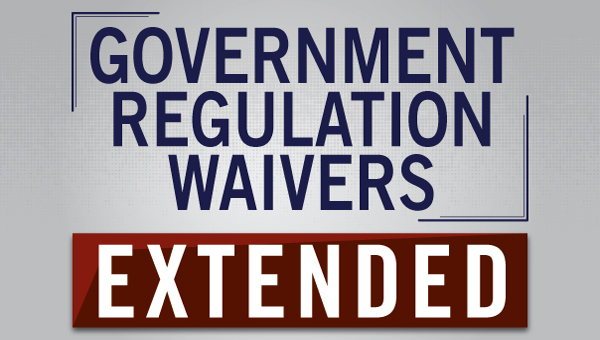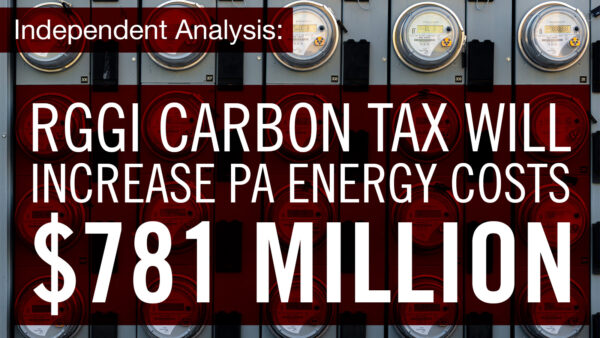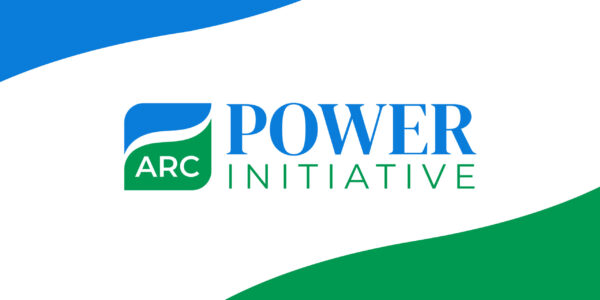
|
||||
|
In this Update:
County Election Officials, Local Leaders Testify at Election Investigation Hearing on the Flaws of Drop BoxesThe Senate Intergovernmental Operations Committee hosted a public hearing this past week regarding the use of election drop boxes in Pennsylvania as part of a larger effort to examine Pennsylvania’s elections in order to identify and address election irregularities and strengthen our voting laws. We heard from four testifiers about the blatant misuse of drop boxes throughout this state, and they made several points clear: Ballot stuffing does occur in Pennsylvania, video surveillance alone does not prevent ballot stuffing, and we owe it to the citizens of this Commonwealth to fix the issues immediately. It’s important for the public to understand that the General Assembly never voted to allow drop boxes in Act 77 or elsewhere, and the utter lack of reliable security surrounding these drop boxes is appalling and unacceptable. In her capacity as County Commissioner, Leslie Osche shared testimony regarding the reasoning behind Butler County officials voting against the use of drop boxes after the Pennsylvania Supreme Court allowed them. Another county leader, Lehigh County GOP Chairman Joe Vichot, told the committee about the discovery of video evidence that depicts ballot stuffing in Lehigh County. He shared the untampered footage during the hearing. Jessica Morgan, a Luzerne County Judge of Elections, testified of her personal interaction with an individual hoping to stuff a drop box by depositing multiple ballots that did not all belong to them into a drop box. Ms. Morgan said she immediately reported this unlawful activity to the authorities. And Dr. John Lott, the president of the Center for Crime Prevention, testified to the issues with drop boxes particularly when compared to their use in other countries around the world. Senate Acts to Extend Pandemic Waivers of Government Regulations
The state Senate this week voted to extend waivers of several regulatory statutes, rules and regulations to aid in Pennsylvania’s recovery from the COVID-19 pandemic. Senate Bill 1019 was signed into law as Act 14 of 2022. The waivers affecting health and human services, as well as consumers, workers and veterans, were due to expire Thursday. Act 14 extends the waivers until June 30, 2022. The waivers were initially implemented as part of the COVID-19 emergency declaration in 2020. In response to overreach by Gov. Tom Wolf, voters in 2021 stripped him of the authority he claimed to extend emergency declarations without approval of the General Assembly. Wednesday’s vote marks the third time the legislature has extended waivers. Some of the waivers extended through June 2022 allow for:
The new law also requires commonwealth agencies to issue a report to the public and the General Assembly identifying regulatory statutes, rules or regulations that were temporarily suspended that the agency believes should be considered for a permanent suspension. Independent Analysis Concludes RGGI Carbon Tax Could Increase Pennsylvania Electricity Costs 3.8 Times more than Wolf Administration Projections
Impartial analysis from the Independent Fiscal Office (IFO) projects the Regional Greenhouse Gas Initiative (RGGI) could nearly quadruple new electricity costs for consumers. The nonpartisan IFO reviewed the Wolf administration’s outdated RGGI modeling and presented its findings to a joint hearing of the Senate Environmental Resources and Energy Committee and the Community, Economic and Recreational Development Committee on Tuesday. IFO Director Matthew Knittel said Pennsylvania could spend upwards of $781 million annually on emissions credits at the RGGI auctions – nearly four times the amount anticipated by the administration’s taxpayer-funded 2020 analysis used to justify Pennsylvania’s participation in RGGI. The IFO also warned members that “those costs would be pushed through to final customers.” The IFO analysis also concluded that emissions reductions between 2008 and 2020 for the 10 RGGI states were comparable to non-participating states. The administration’s effort to force Pennsylvania into RGGI is being challenged in court and could face additional legislative action. “Purple Star Schools” to Support Military Families Approved by Senate
The Senate approved legislation to have Pennsylvania join 28 other states in establishing a Purple Star School Program for students from military families. The measure was sent to the House of Representatives for consideration. The program is a state-sponsored recognition designed to acknowledge a public, private or charter school that has committed to supporting the unique educational and social-emotional needs of military-connected students. A Purple Star School designation means better ease and consistency in transferring schools so children experience fewer educational gaps and obtain meaningful support when frequently moving to new towns and schools as a military child. Senate Bill 1028 would provide “Purple Star” recognition to schools that: maintain a website with resources for military-connected students and their families, designate a staff point of contact for these students, provide training to school staff to best equip them to support these families, establish a partnership with a military installation, and take other steps. Senate Votes to Extend Disaster Emergency Declaration for Pittsburgh Bridge Collapse
The Senate approved a resolution to extend the disaster emergency declaration of Jan. 28 until Sept. 30 for the collapse of the Fern Hollow Bridge in Pittsburgh. The bridge’s collapse caused adverse impacts within the City of Pittsburgh, and traffic patterns are still disrupted. House Resolution 188 is necessary to help ensure the Pennsylvania Department of Transportation is eligible to receive emergency relief funding from the Federal Highway Administration. The bridge collapse injured 10 people. The cause is under investigation by the National Transportation Safety Board. Congressman Thompson Now Accepting Fiscal Year 2023 Appropriations RequestsThe office of Congressman Glenn “GT” Thompson (PA-15) is now accepting programmatic, language and Community Project Funding (CPF) requests for Fiscal Year 2023 (FY 2023). To make a request, please fill out this form by 11:59 p.m. on Monday, April 18, 2022. CPFs will be issued on a limited basis within the FY 2023 appropriations bills. Therefore, only CPF requests that address the most critical and outstanding needs of local communities, or provide a significant public good, will be considered. Submission of a request does not guarantee a project will be funded. Each subcommittee of the House Committee on Appropriations has specific guidance for programmatic, language and community project eligibility, along with the process for making a request. Please closely review the guidelines per each subcommittee to ensure your project meets the requirements. Should a project fail to meet these requirements, the request cannot be considered. Additionally, funds for these projects must be used during the FY 2023 budget cycle. Any request that includes funding beyond FY 2023 cannot be considered. For more details about the specific guidance, CLICK HERE, and if you have any questions, please email PA15.Appropriations@mail.house.gov. North Central Region 2022 Construction Season Previewed by PennDOT
A total of 98 projects are anticipated to start or continue this year in the nine-county North Central Region, according to a recent preview done by the Pennsylvania Department of Transportation (PennDOT). The projects planned for the PennDOT Engineering District 2-0 Region (Cameron, Centre, Clearfield, Clinton, Elk, Juniata, McKean, Mifflin, and Potter counties) include more than 210 miles of paving along with the repair or replacement of 53 bridges – for a list of the more notable projects located within the region, CLICK HERE. The work planned by PennDOT will improve public safety and ensure our community economies continue to thrive as goods, services and visitors travel into and out of our region. Agriculture Energy Efficiency Rebates Still Available
Some changes have been made to the Pennsylvania Department of Environmental Protection (DEP) pilot Agriculture Energy Efficiency Rebate Program, which seeks to help state’s agricultural producers reduce energy consumption on their farms by using energy efficient technologies. Commercial agricultural producers who conduct normal farming operations in Pennsylvania – which is defined by the program as farming on 10 or more contiguous acres of land, or farming less than 10 acres but having an anticipated yearly gross income of at least $10,000 – are eligible to apply. The changes made to the program include the extension of its deadline from March 30, 2022, to June 30, 2022; in addition to funding LED lighting (bulbs and fixtures), funding can also be used for lighting controls; in addition to funding Variable Frequency Drives (VFDs) for ventilation, funding can be used for energy efficient ventilation fans and motors, with the minimum horsepower rating removed; and in addition to funding VFDs for milk pumping equipment, funding can also be used for energy efficient pumps and motors. The maximum rebate for each of the three technology categories is $2,000, but while an applicant can apply for a rebate in each category, total funding for any one applicant cannot exceed $5,000. For more about the program, including how to apply, CLICK HERE. Appalachian Regional Commission POWER Initiative Grants Available
A total of approximately $25 million in grant funding is available through the Appalachian Regional Commission (ARC) POWER Initiative, which seeks to help communities and regions that have been affected by job losses in coal mining, coal power plant operations and coal-related supply chain industries due to the changing economics of America’s energy production. While grants will be awarded for projects that will leverage entrepreneurship, workforce development, and infrastructure to bolster re-employment opportunities, create jobs in existing or new industries, and attract new sources of investment, up to one-third of the total available grant funding will be offered for broadband deployment projects. In recognition of the capital-intensive nature of broadband deployment, the cap on funding for broadband deployment projects will be $2.5 million, while all other projects will be capped at $1.5 million. Letters of intent for grants must be submitted by 5 p.m. on April 4, 2022, while applications are due by 5 p.m. on April 29, 2022. Since 2015, the ARC, made up of 423 counties across 13 states including Pennsylvania, has invested as part of its POWER Initiative nearly $316.6 million in 393 projects affecting 358 counties. For more about applying for a grant, CLICK HERE; for more about the broadband deployment-related details, CLICK HERE; and for an application checklist, CLICK HERE. North Central Pennsylvania Regional Planning and Development Commission Puts Out Call for Projects
The North Central Pennsylvania Regional Planning and Development Commission, which is committed to assisting stakeholders across the six-county region (Cameron, Clearfield, Elk, Jefferson, McKean and Potter counties) with identifying and securing federal and state resources that strengthen the communities of north central Pennsylvania, is looking for projects to better the region. The commission has partnered with Atlas Community Studios, a firm specializing in strategic planning and place-based economic development, and Broad Ripple Strategies to create a new Comprehensive Economic Development Strategy (CEDS) and Resiliency Plan. According to the U.S. Economic Development Administration (EDA), a CEDS is a strategy-driven plan for regional economic development and is the result of a regionally-owned planning process designed to build capacity and guide the economic prosperity and resiliency of an area or region. Currently, Atlas is looking for priority projects to be included in the CEDS and Resiliency Plan update. If you would like your project to be included as a CEDS priority project, please submit the Project Intake Form by April 15, 2022. You can indicate that you would like your project included in the CEDS as a priority project on the Project Intake Form. The selected projects will also be included in funding roadmaps. The CEDS Investment Priorities include the following: expanding and strengthening employment and education opportunities that provide stable family wage jobs; investments in entrepreneurship and home-grown business development to build a sustainable, diverse economy; preserving and investing in the region’s natural and cultural assets to strengthen economic potential; creating and/or improving reliable, consistent access to critical infrastructure in North Central Pennsylvania; and providing sufficient availability of right-sized, right-priced housing throughout each county within the North Central Pennsylvania region. Public Comment Period Open, Hearings Scheduled for DEP’s Draft Environmental Justice Public Participation PolicyThe Pennsylvania Department of Environmental Protection (DEP) has released its draft changes to the Environmental Justice Public Participation Policy (EJ Policy), which impacts how DEP oversees and participates in environmental justice priorities and reform with community partners. The public comment period for the policy changes is open through Wednesday, May 11, 2022. Additionally, the Department will be holding 3 virtual public hearings, with the first to be held on April 5, 2022 at 5 p.m. The other virtual hearings will be held on Tuesday, April 12 at 6 p.m. and Thursday, April 28 at noon. Those wishing to present testimony at a hearing must contact Glenda Davidson, (717) 783-4759 or RA-EPOEJ@pa.gov, at least 24 hours in advance, to reserve a time to present testimony; verbal testimony is limited to 5 minute per person. Language interpretation services are available upon request. Persons in need of language interpretation services must contact Glenda Davidson at least one week in advance. To submit written comments, commenters are encouraged to use DEP’s online eComment tool at https://www.ahs.dep.pa.gov/eComment/ or e-mail (mail to ecomment@pa.gov). Written comments may also be mailed to the Technical Guidance Coordinator, Pennsylvania Department of Environmental Protection, Policy Office, Rachel Carson State Office Building, P.O. Box 2063, Harrisburg, PA 17105-2063. Assistance Available for COVID-Related Funeral Expenses
Pennsylvanians who incurred funeral expenses for a COVID-19-related death can apply for the Federal Emergency Management Agency’s (FEMA) COVID-19 funeral assistance program to help ease the financial burden brought on by the pandemic. The program will provide reimbursement for expenses incurred for funeral services, including but not limited to transportation to identify the deceased individual, the transfer of remains, a burial plot or cremation niche, a marker or headstone, clergy or officiant services, the use of funeral home equipment or staff, and cremation or interment costs. Eligible applicants can apply for the funeral assistance program by calling FEMA’s COVID-19 Funeral Assistance Helpline at 1-844-684-6333 from 9 a.m. to 9 p.m., Monday through Friday to begin the application process. |
||||
|
||||


2024 © Senate of Pennsylvania | https://senatordush.com | Privacy Policy |









